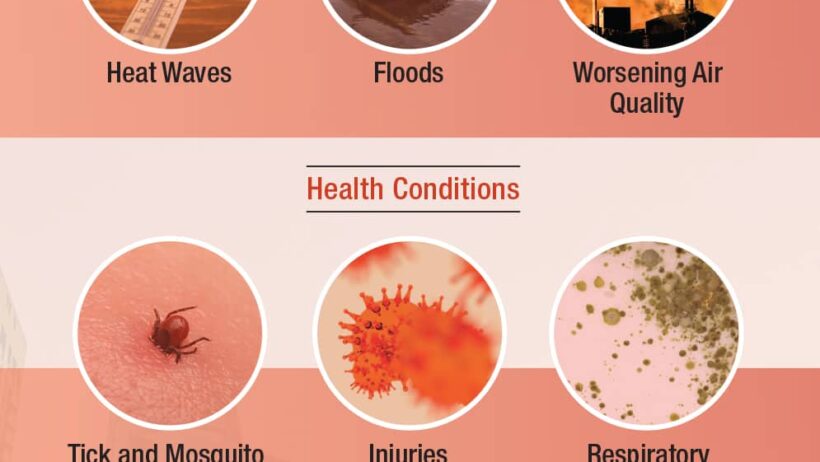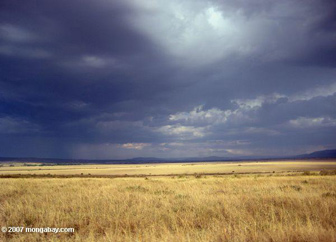Global warming is an urgent predicament that transcends environmental concerns, infiltrating the very fabric of human health. Have you ever pondered how rising temperatures could influence your well-being? As climate change exacerbates, the repercussions on public health will be significant and multifaceted. Understanding these impacts, which range from heat-related illnesses to the proliferation of infectious diseases, is crucial for safeguarding our health in the face of a warming planet.
Firstly, one of the most immediate effects of global warming is the increase in temperature, which leads to a plethora of heat-related illnesses. Prolonged exposure to elevated temperatures can precipitate heat exhaustion and heat stroke, both of which can be fatal without prompt intervention. Vulnerable populations, particularly the elderly, children, and those with pre-existing health conditions, are at heightened risk. The Centers for Disease Control and Prevention reported that extreme heat events contribute to an increased incidence of hospitalizations and mortality rates. The effects of heat are not confined to direct exposure; elevated temperatures can exacerbate chronic conditions such as cardiovascular disease, significantly increasing health complications.
Lamentably, the challenges posed by rising temperatures are not limited to extremes. Global warming also catalyzes worsening air quality. Elevated temperatures promote the formation of ground-level ozone, a significant component of smog that can aggravate respiratory problems such as asthma and chronic obstructive pulmonary disease (COPD). Furthermore, increased variability in weather patterns can lead to the dispersion of allergens like pollen, contributing to seasonal allergies. What happens when your every breath becomes a struggle? It’s a daunting reality that many will face as air quality deteriorates.
Moreover, severe weather events, such as hurricanes, floods, and droughts, are becoming more frequent and intense due to climate change. These natural disasters present direct physical threats but also lead to indirect health risks. For instance, flooding can result in waterborne diseases, while droughts can diminish food security, leading to malnutrition. The disruption of local infrastructures during disasters adversely impacts healthcare delivery, complicating medical responses and increasing vulnerability to various health crises. The linkage between climate events and health outcomes cannot be overlooked; it provides a sobering insight into the complexities of global warming.
Another significant concern is the interplay between climate change and infectious diseases. Warmer temperatures can expand the geographical range of vectors, such as mosquitoes and ticks, responsible for transmitting pathogens. Diseases like malaria, dengue fever, and Lyme disease could flourish in regions once considered inhospitable. Imagine living in an area where once you felt safe from malaria is suddenly within reach as mosquito populations surge. Such shifts demand vigilant public health measures and adaptive strategies to mitigate these emerging threats.
In addition to vector-borne diseases, climate change affects water and food sources, further compounding health risks. Temperature fluctuations and altered precipitation patterns have the potential to contaminate water supplies and disrupt agricultural systems, respectively. The resultant food and water scarcity can precipitate episodes of foodborne illnesses. When food safety nets wane and clean water becomes a rarified resource, communities face insurmountable challenges in maintaining proper nutrition and health.
Furthermore, mental health implications cannot be understated. The gnawing uncertainty associated with climate change, coupled with the fear of natural disasters, can precipitate anxiety, depression, and trauma. Communities that have weathered catastrophic events experience psychosocial stressors that extend far beyond the immediate impact of the disaster. Emerging research indicates that sustained exposure to adverse environmental changes correlates with an uptick in mental health disorders. As the planet warms, will our shared psyche bear the weight of this existential dilemma?
Adapting to these health risks is paramount. Proactive community planning and public health initiatives can mitigate the adverse effects of global warming. One potential challenge lies in fostering public awareness and understanding of these interconnected health risks. Education plays a pivotal role; equipping individuals with knowledge about both personal and community-level strategies can galvanize action. Engaging communities in resilience-building measures—such as creating accessible cooling centers, improving urban green spaces, and enhancing public transportation—will be instrumental in protecting vulnerable populations.
Finally, scientific and healthcare communities must collaborate to bolster research and surveillance on climate-related health issues. Comprehensive data collection and analysis will enable timely responses to emerging concerns. For instance, tracking the spread of vector-borne diseases or monitoring air quality indices can guide public health policies and interventions effectively. Will we heed the clarion call of climate science to inform our health strategies? The responsibility to act is multi-faceted and requires a concerted effort across disciplines.
While the ramifications of global warming are daunting, acknowledging and addressing these health risks is crucial. By fostering environmental stewardship and innovative public health responses, we can mitigate the effects of climate change on human health. The challenge ahead calls for vigilance, adaptability, and collective action. The health of our planet and its inhabitants hinges on our capacity to embrace sustainable practices and safeguard our well-being as global temperatures continue to rise.








